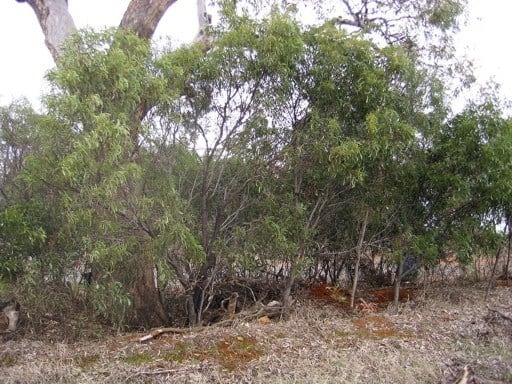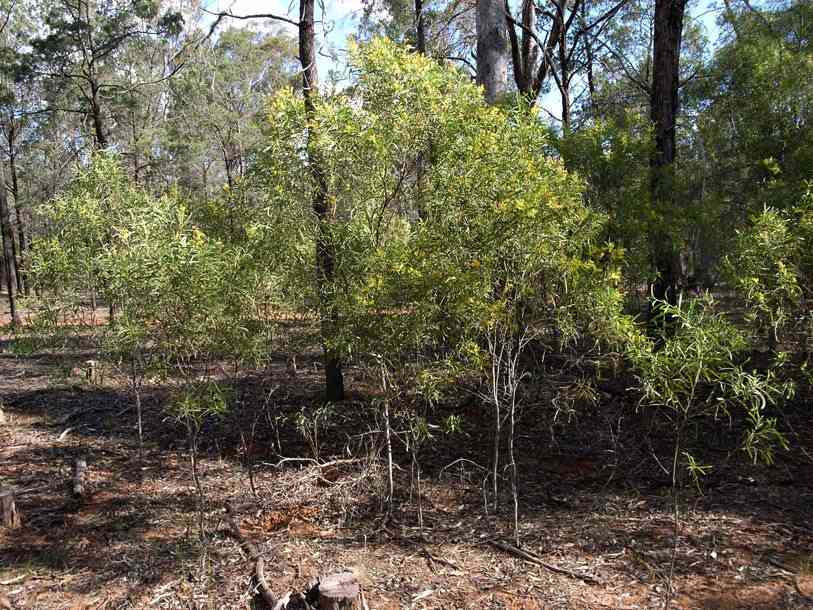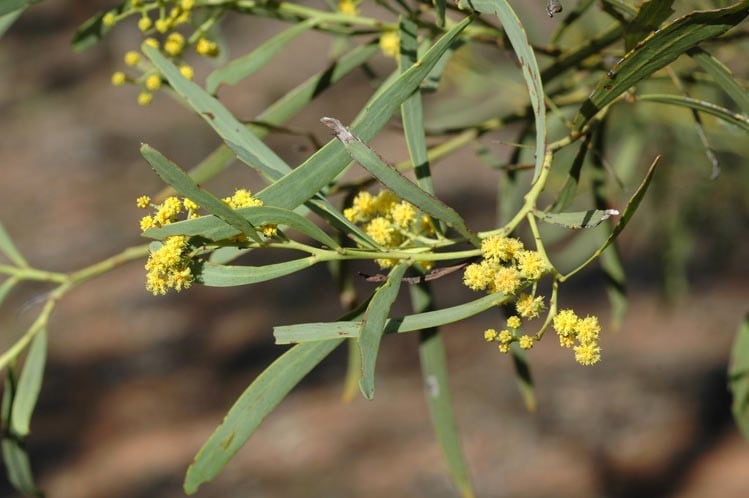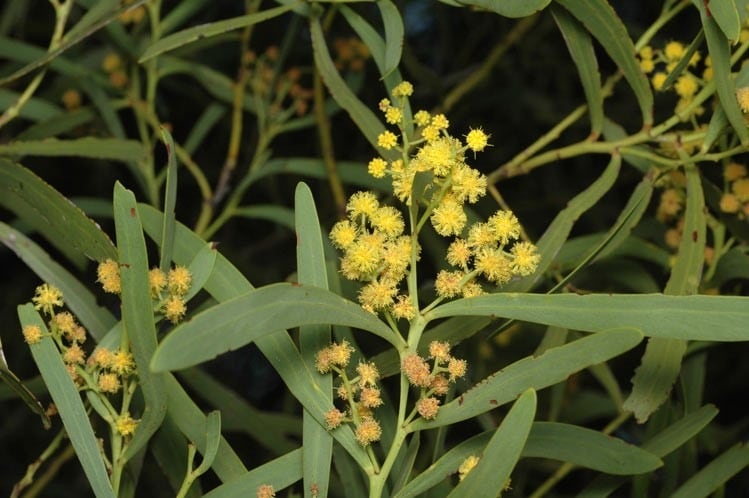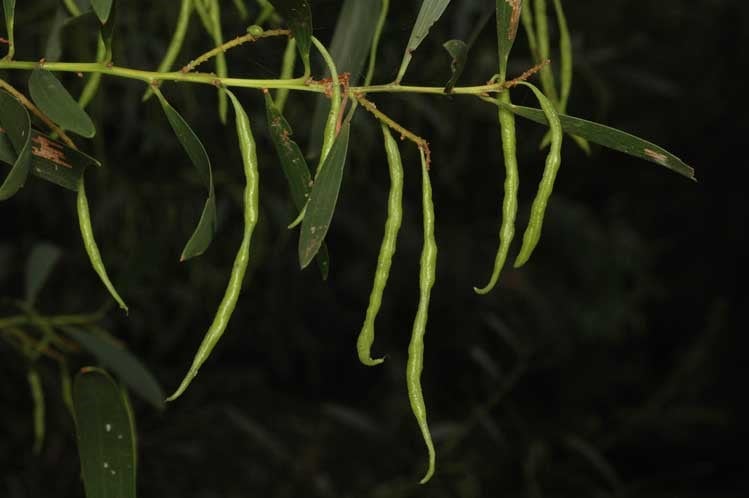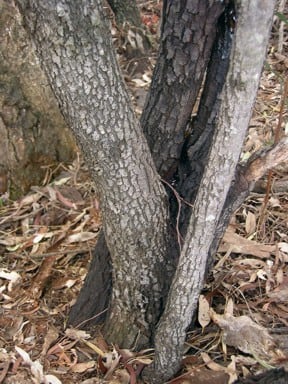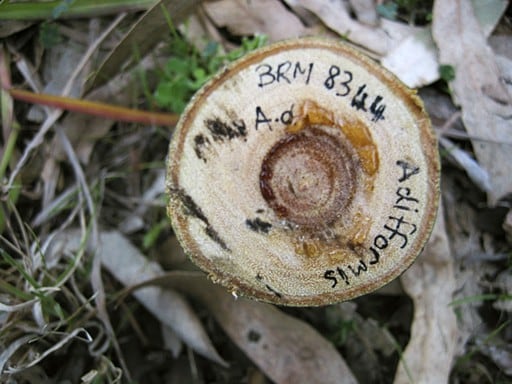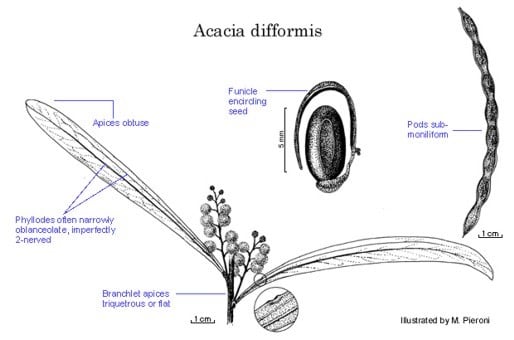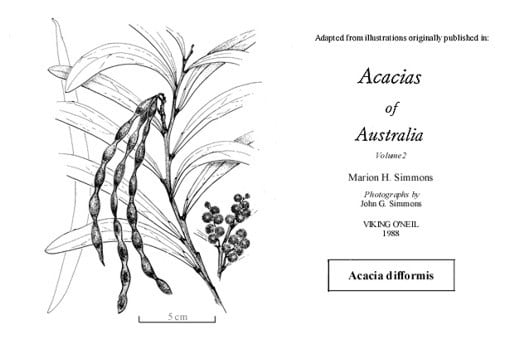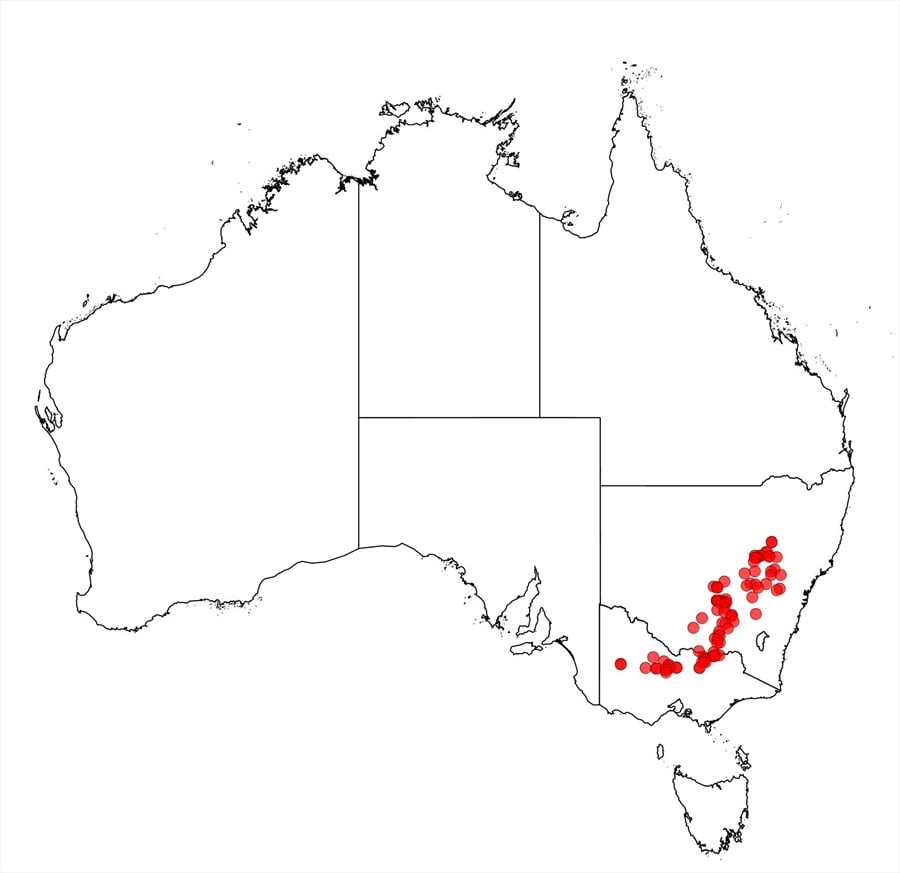Acacia difformis R.T.Baker
WATTLE
Acacias of Australia
Common Name
Drooping Wattle, Wyalong Wattle, Mystery Wattle (Vic.)
Family
Fabaceae
Distribution
Scattered on the inland slopes of the Great Divide and adjacent plains from Cobar and Merrygoen, N.S.W., to Dimboola, Vic.
Description
Irregularly formed shrub or rounded tree normally 2–7 m high, often suckering and forming thickets. Branchlets acutely triquetrous or flat at extremities, red-brown, glabrous. Phyllodes often pendulous, narrowly oblanceolate, sometimes narrowly elliptic or linear, straight to shallowly recurved, (4–) 6–16 (–20) cm long, (3–) 5–15 (–30) mm wide, obtuse, green to ash-coloured, glabrous, with prominent midrib and a weaker nerve parallel to midrib near adaxial margin, finely penninerved; glands 1 or 2, with lowermost normally 1–3 cm above pulvinus and sometimes touching adaxial longitudinal nerve or connected to it by a fine oblique nerve. Inflorescences 8–25-headed racemes; raceme axes 1–6 (–7) cm long, glabrous; peduncles (2–) 3–6 (–8) mm long, glabrous; heads globular, (15–) 20–35-flowered, light golden. Flowers 5‑merous; sepals united. Pods ±moniliform, to 20 cm long, 4–6 mm wide, thinly coriaceous to crustaceous, glabrous. Seeds longitudinal, oblong to elliptic, 6.5–8 mm long, slightly shiny, dark brown; funicle encircling seed in a single fold, reddish black; aril clavate.
Phenology
Often flowers in summer.
Habitat
Grows in sand or sandy loam, usually in mallee communities or open forest.
Specimens
N.S.W.: Goonoo State Forest, 8 km E of Mogriguy, 9 Dec. 1961, E.F.Constable 15 (MEL, MO, NSW, PERTH); 41.5 km WNW of West Wyalong towards Rankins Springs, R.Coveny 2551 (MEL, PERTH). Vic.: Bendigo Whipstick, c. 14 km due N of Bendigo township, B.R.Maslin 5855 (CANB, MEL, PERTH); Wright paddock adjoining Nhill Rd near Dimboola, 23 Nov. 1899, F.M.Reader s.n. (MEL).
Notes
A distinctive member of the ‘Acacia microbotrya group’ on account of its phyllodes with a strong midrib and a weaker secondary nerve parallel to it which runs ±the full length of the phyllode near the adaxial margin. Acacia hakeoides is similar in phyllode and pod shape and size but differs especially by having phyllodes with 1 nerve per face, white-fimbriolate bracteoles and funicles that do not encircle the seeds.
FOA Reference
Data derived from Flora of Australia Volumes 11A (2001), 11B (2001) and 12 (1998), products of ABRS, ©Commonwealth of Australia
Author
B.R.Maslin
Minor edits by B.R.Maslin & J.Rogers
This identification key and fact sheets are available as a mobile application:
URL: https://apps.lucidcentral.org/wattle/
© Copyright 2018. All rights reserved.
